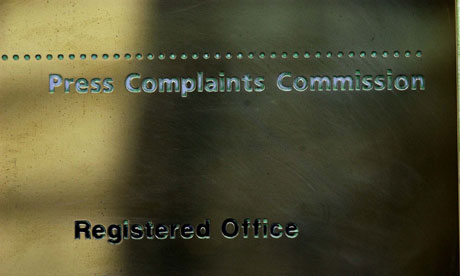PP is a grandee of the Guardian, a former editor. The paper is an unlikely defender of the PCC (its recent editorials declare the PCC dead), but PP with this article provides some nice detail on how the PCC came into being, flagging up the industry divide between the tabs/mid market ('red tops') - who feared losing the freedom to sensationalise and invade privacy that underpinned their sales appeal - and the broadsheets - who feared losing the freedom of investigative journalism if statutory regulation were brought in.
Its a useful article then to pick out some arguments for self-regulation, as fundamentally flawed as this has long seemed to be:
Link: http://www.guardian.co.uk/commentisfree/2011/jul/10/pcc-dont-toss-away-freedoms
Fear the void after the PCC
I was there when self-regulation was set up: don't let's toss away the freedoms we fought for

Press Complaints Commission. Photograph: Martin Godwin for the Guardian
It was the last big press crisis before the next one. In 1990 two journalists from the Sunday Sport had sneaked into the hospital bedroom of the gravely injured actor Gordon Kaye and started snapping away. Cue outrage. A government-appointed committee chaired by Sir David Calcutt wanted the old Press Council scrapped and a new Press Complaints Commission established. If it wasn't up and working effectively within 18 months, a statutory tribunal – able to license, ban and injunct – would take its place. Editing this paper, I was close to the action.
My colleague in press freedom campaigning, Frank Rogers, was running the Newspaper Publishers' Association (NPA). Harry Roche, the Guardian group chief executive, had been persuaded to try to raise the millions needed to make transition to a new PCC possible. I was constantly up and down the stairs to the management floor. Which brings us, with a grimace, to what our current PM blithely calls "the industry".
What's the point of self-regulation regimes? To hold on to nurse for fear of something worse – in this case, Downing Street and its associates moving, through new laws, to nobble reporters making waves. Who fears new laws against privacy most keenly? The red-tops and the middle market tabloids, who see much of their business at stake. That's why David English at the Daily Mail and – yes! – Rupert Murdoch were influential behind the scenes in pushing and prodding the PCC into life.
Why on earth was the Guardian involved then? Because we understood, from often bitter experience, that there is not one law for the tabloids and another for the rest: my files were full of legalistic threats about privacy from Robert Maxwell and others. The high farce and high cost of defending the publication of Spycatcher against Margaret Thatcher was still fresh in our minds. And press freedom, all round the world, is snuffed out by government-appointed "press councils".
But did "the industry" agree? One end – the Financial Times end – wasn't very enthusiastic about helping the Daily Star. The Mirror didn't like anything backed by the Sun, and vice versa. The regional press blamed the nationals. Magazine publishers moaned. Several stark voices said: forget commissions and codes and all that stuff; if the politicians want to take us on over individual cases – say the "persecution" of Jeffrey Archer – then let's fight it out. The Sunday Sport isn't a newspaper anyway. Consensus was, and remains, fragile.
Frank Rogers pulled it all together. By the start of 1991 the PCC was up and running. It had no lawyers round the table, because it wanted to deal with complaints fast and cheaply. It had some editors there, because newspaper staff would heed what they decreed. It didn't have fines and penal injunctions. And, in a wholly imperfect world, it worked as well as could rationally be expected.
David Cameron was defending its achievements only two months ago. Now, in a switch Robert Mugabe might envy, he pronounces it dead (for not uncovering facts in 2009 that the might of MI5 failed to mention to him before appointing Andy Coulson). Forget press freedom when No 10 panics. Will it be any easier, this time round, to decide on successor regulation? No, it will be much more difficult. The NPA is weaker. Big movers and shakers – from the Mail to Wapping – are hors de combat. The digital revolution peddling true freedom of information ploughs on. Even loftier journalists who've derided the PCC, like those who've betrayed it, haven't thought through what comes after.
But, from the Caribbean to the Balkans to southern Africa, all those countries that have built press self-regulation on our model will be worrying. Is a freedom so toiled after and fought for something that can be tossed away? Watch this space: and fear the void.
• To comment on this story or any other about phone hacking, visit our open thread.
